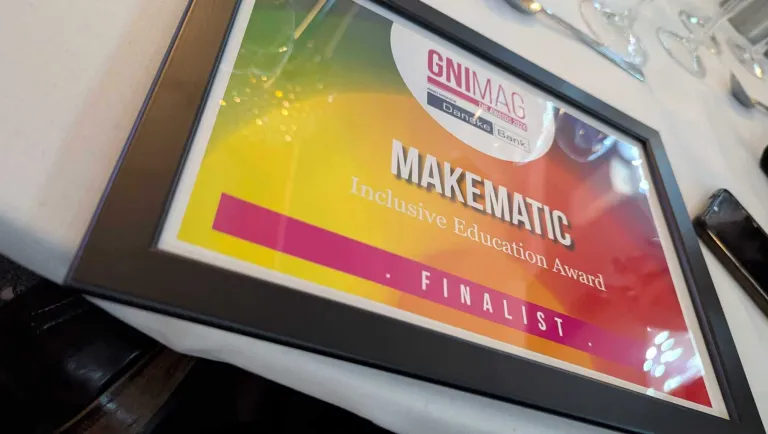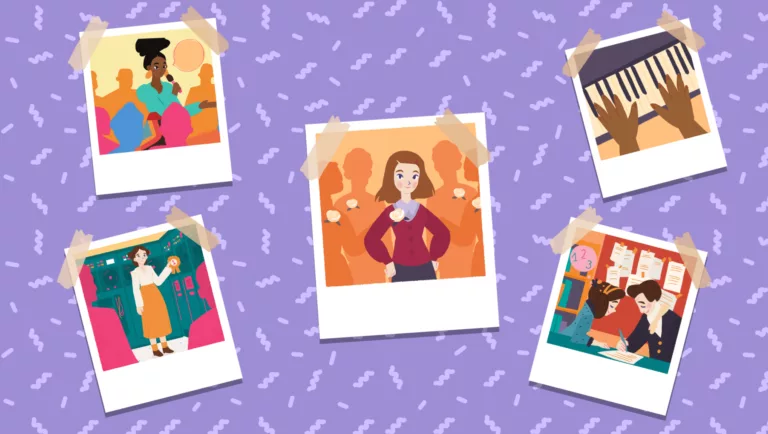
How To Increase Student Learning & Engagement When Learning Goes Online
Motivating and engaging learners can be challenging in any learning environment. But understanding self-determination theory will give you a structure for helping you do this. Self Determination Theory represents a broad framework for the study of human motivation. It suggests that when people are motivated to grow and change, they become self-determined.
We become more self-determined when we:
- Master tasks and learn different skills (Competence)
- Feel a sense of attachment and belonging to people (Relatedness)
- Feel in control of our own goals and behaviours. (Autonomy)
Moreover, when people engage in activities for an inherent reward, (intrinsic motivation) it's more motivating than carrot and stick ones (extrinsic motivation). For educators, this means that when designing online learning, it's important to think about how to incorporate the elements listed above into online lessons or curriculum.
Creating Online Learning Experiences to Motivate and Engage Learners
Over the next couple of weeks, I'll be sharing a number of evidence-based strategies to help educators motivate and engage your learners in online teaching environments. The strategies and activities will:
- Encourage student-to-student interaction.
- Facilitate online discussions, virtual brainstorming, and problem-based learning, and
- Develop reflective thinking practices.
Because I don't want to keep you waiting, check out educator Michael Cohen's three strategies for increasing student engagement online that you can use in your classes today!
Coming Soon
Teaching Online Masterclass (TOM) Series 2
In 2020 we released series 1 of TOM. A series of over 50 bite-sized videos to help educators navigate the world of online teaching and learning. Series 2 will take what was included in series 1 further. It will look at the drivers of motivation, engagement, and learning, as well as the key skills educators, need to develop in their students for online learning success.
If you're curious to find out how educators around the world are faring, check out some of the interviews and blogs we published last year.
Taking Classes Online Interviews
Episode 1, Dr. Heather McClue about the trials and tribulations of taking her law classes online.
Episode 2, Eduardo Mórlan gives advice on how to teach languages remotely.
Episode 3, Physical Education teacher Kylene Simmons talks about how her school used technology to engage students in health and physical education classes.
Taking Classes Online Blogs
Taking European Studies and Modern Foreign Languages Online,
Making Adjustments during Remote Learning
Preparing Students With Disabilities To Return To School.
Finally, if you’ve got a story to share or would like to write a blog, send me an email and I’ll be in touch.
References
Chyung, S.Y., (2001) Systematic and systemic approaches to reducing attrition rates in online higher education. American Journal of Distance Education, 15(3): 36-49 DOI: 10.1080/08923640109527092
Kerr, S. (2011). High school online: Pedagogy, preferences, and practices of three online teachers. Journal of Educational Technology Systems,39, 221–244. doi:10.2190/ET.39.3.b
Park, J-H., & Choi, H.J., (2009) Factors influencing adult learners' decision to drop out or persist in online learning. Educational Technology and Society, 12(4):207-217
Roblyer, M.D. (1999) Is choice important in distance learning? A study of student motives for taking internet-based courses at high school and community college levels, Journal of Research in Computing in Education, 32(1):157-171, https://doi.org/10.1080/08886504.1999.10782621
Ryan, R.M., and Deci, R.M. ( 2000) Self-Determination Theory and the Facilitation of Intrinsic Motivation, Social Development, and Well-Being, American Psychologist, 55(1): 68-78, DOI: 10.1037/0003-066X.55.1.68
Sankarn, S.R., and Bui, T. (2001) Impact learning strategies and motivation on performance: A study in web-based instruction, Journal of Instructional Psychology, 28: 191-198
Skinner, E. A., & Belmont, M. J. (1993). Motivation in the classroom: Reciprocal effects of teacher behavior and student engagement across the school year. Journal of Educational Psychology, 85(4), 571–581. https://doi.org/10.1037/0022-0663.85.4.571
Let's Work together


Makematic Finalists in Inclusive Education Award

